Mr. Nguyen Anh Tuan, General Director of EVN, said that 2024 will continue to be a difficult year in terms of finance and electricity supply for this group if there are no changes in policies and prices.
This reality was shared by General Director of Vietnam Electricity Group (EVN) Nguyen Anh Tuan at the conference summarizing production and business in 2023 and the plan for 2024 on January 2.
According to Mr. Tuan, in the past two years, EVN has had difficulties in balancing finances and the biggest challenge in 2024 is still ensuring finances and electricity supply. This year, the maximum commercial electricity output is forecast to be 269.3 billion kWh. EVN plans to ensure enough electricity for socio -economic development with GDP increasing by 6-6.5%.
However, EVN leaders acknowledged that electricity supply remains difficult due to dependence on unusual weather conditions and imbalances in supply and demand between regions. For example, the North has no backup power source but its demand for electricity increases by 9-10% each year.
State corporations only manage over 47% of power sources, of which EVN accounts for 37.5%, the rest depends on external power sources. This causes difficulties in managing and operating the power system. At the same time, investment in the construction of power source and grid projects still faces difficulties in terms of procedures, capital, land allocation, compensation for site clearance, and conversion of forest use purposes.
According to the previous calculations of the Ministry of Industry and Trade , this year, if the water flow to hydroelectric reservoirs is normal, the national power system will basically have enough power. However, the North still has to face the situation of peak power stress at some times (from 13-16h, 19h-22h) during the day on hot days.
In extreme cases, low water levels in hydroelectric reservoirs will make it more difficult to supply electricity to the North. It is forecasted that the North may lack 420-1,770 MW of electricity capacity during peak hours in June and July.
Regarding the financial situation , Mr. Tuan said that after two increases in the average retail electricity price last year, by 7.5%, it was still not enough to cover production costs because input parameters remained high. EVN suffered losses in electricity production and business for the second consecutive year.
The loss figure was not mentioned by Mr. Tuan at today's summary conference, but according to the previous report of the Ministry of Industry and Trade, EVN said it recorded a consolidated pre-tax loss of VND 17,000 billion in 2023 (of which the parent company's loss was nearly VND 24,600 billion). This level decreased by more than VND 9,000 billion compared to 2022.
The above losses are mainly due to EVN's selling price being lower than the cost price. Currently, the average total cost of electricity generation, transmission and distribution is 2,092.78 VND per kWh, while the average selling price is 1,950.32 VND. That means for each kWh sold, EVN loses nearly 142.5 VND.
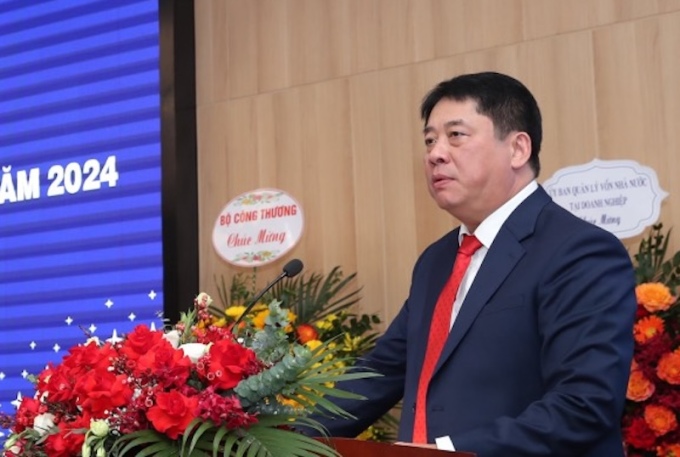
Mr. Nguyen Anh Tuan, General Director of EVN, spoke at the summary conference on January 2. Photo: Trung Tran
Fuel prices (coal, oil, gas) remain high, electricity output mobilized from hydropower (the lowest priced source of electricity) has decreased by over 4% due to poor water in reservoirs and high market purchase prices... are the reasons for the increase in EVN's electricity production costs.
Another reason Mr. Tuan mentioned is that currently EVN and the Power Generation Corporations (Gencos) can only take the initiative in about 37.5% of the power source; the rest (62.5%) depends on PVN, TKV and outside investors (BOT, private). Thus, the proportion of electricity purchased by EVN currently accounts for 80% of the cost price, twice as high as other countries, which is an inadequacy in electricity consumption.
"EVN still has 20% to regulate the remaining stages such as transmission and distribution, so it is very difficult to optimize finances, not to mention impossible," said Mr. Tuan, adding that market policies and electricity prices need to be reviewed and changed by competent authorities to support this group in balancing its finances.
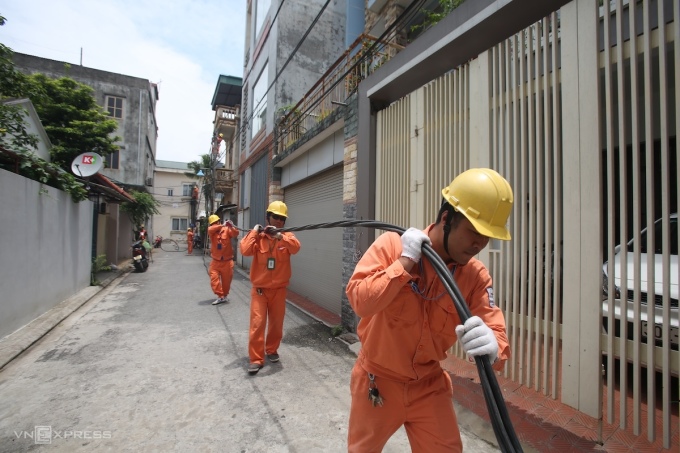
Hanoi Electricity workers repair power lines during the hot season, 2022. Photo: Ngoc Thanh
EVN's General Director proposed that the State Capital Management Committee at Enterprises consider allowing the group to exclude some factors from its losses, so that it can have a source to pay salaries to its employees. Mr. Tuan also proposed that the Ministry of Industry and Trade review and re-evaluate the electricity market to make adjustments and have a more transparent electricity market in the future.
Chairman of the State Capital Management Committee at Enterprises Nguyen Hoang Anh also agreed that without increasing electricity prices, it would be difficult to resolve EVN's accumulated losses.
In addition to the price mechanism, Mr. Dang Hoang An, Chairman of EVN, said that the group must make efforts to reduce and tighten costs, from operating the system, purchasing electricity, negotiating electricity purchase contracts, purchasing, borrowing capital, etc. The group also thoroughly fights against negativity and corruption within the group. "The recent cases of handling and prosecuting officials are a pain and shame for the electricity industry," the Chairman of EVN added.
Faced with many financial and electricity supply difficulties of EVN, Deputy Minister Nguyen Sinh Nhat Tan said that the Ministry is reviewing policies, proposing amendments to the Electricity Law and is expected to submit it to the National Assembly for approval in 2024. In particular, EVN's recommendations on energy development mechanisms, markets, and prices will be recorded in the process of amending laws and guiding documents (decrees, circulars) to ensure that this group operates more smoothly.
"EVN needs to prepare scenarios, especially a plan for supplying electricity in the dry season, to ensure there is absolutely no power shortage like in 2023, according to the Prime Minister's direction," Deputy Minister Tan suggested.
In fact, with the total power supply from state-owned corporations (EVN, PVN, TKV) accounting for nearly 48%, but EVN is currently the only buyer in the market, so when there is a power shortage, this corporation bears the main responsibility. "The power shortage in 2023 is an expensive lesson for the corporation. 23 days of power shortage have greatly affected the investment and business environment," admitted Mr. Dang Hoang An, Chairman of EVN.
Learning from last year's experience, EVN requires factories to avoid shortages of coal, gas, and oil for power generation and water shortages in hydroelectric reservoirs. In addition to PVN, TKV, and other power project investors in power supply, the group also adjusted decentralization and internal management to increase inspection and supervision at member units, avoiding unfortunate violations like in 2023.
Source link


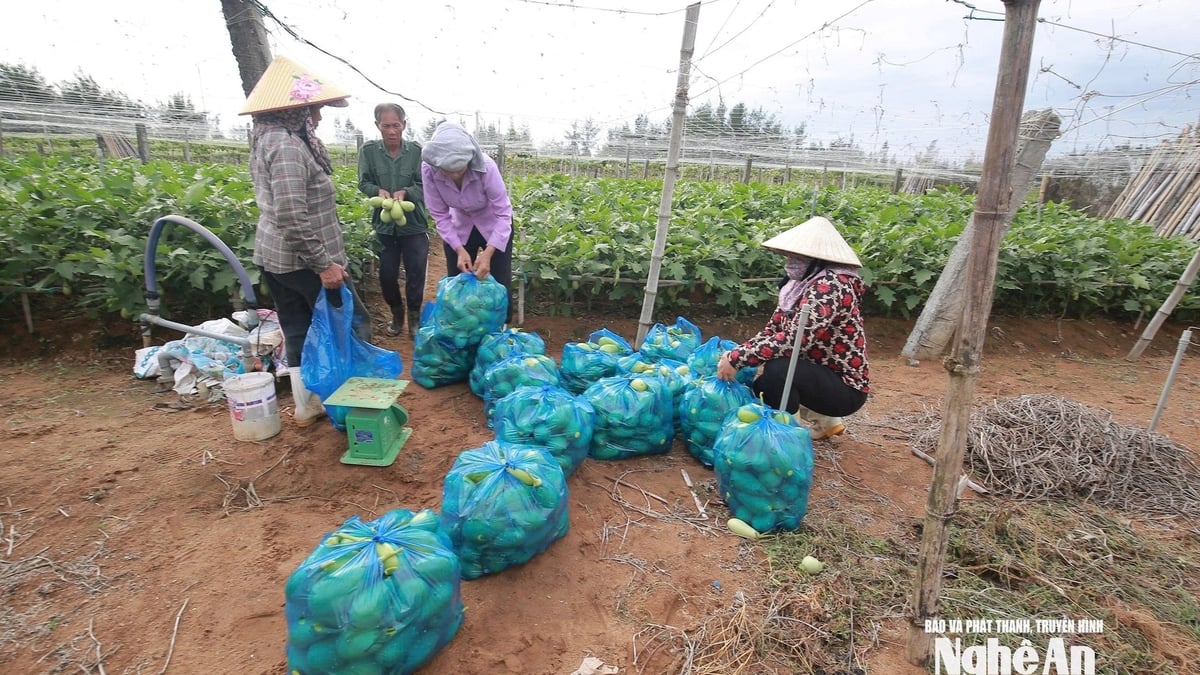
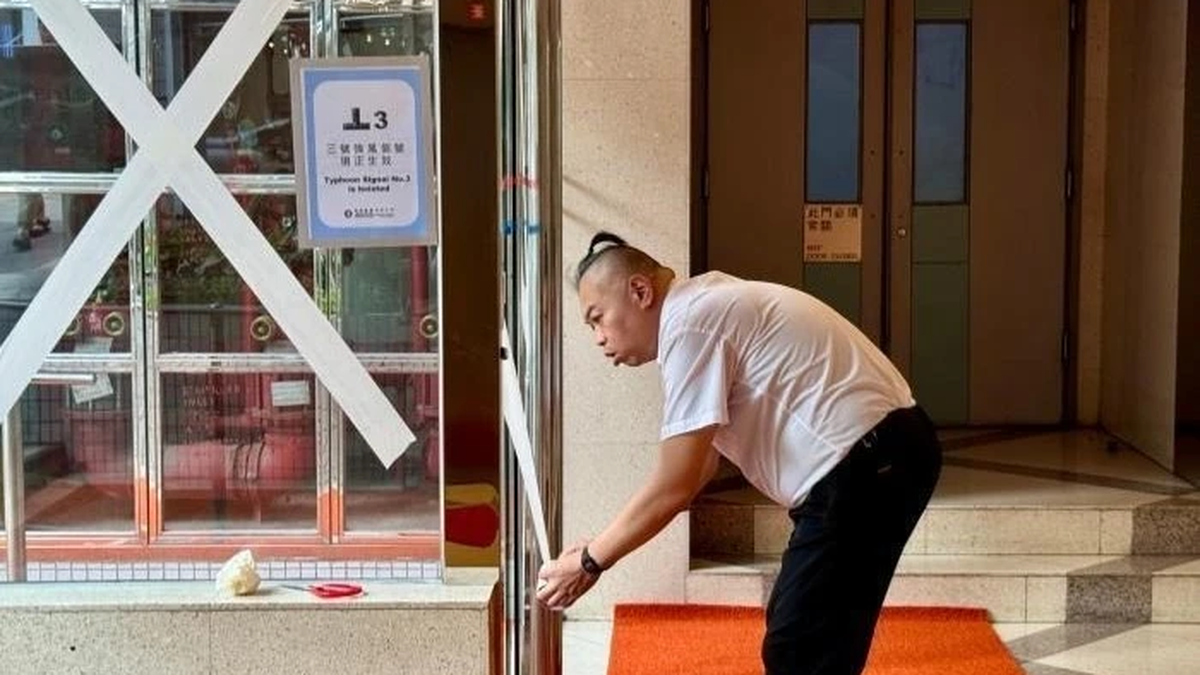
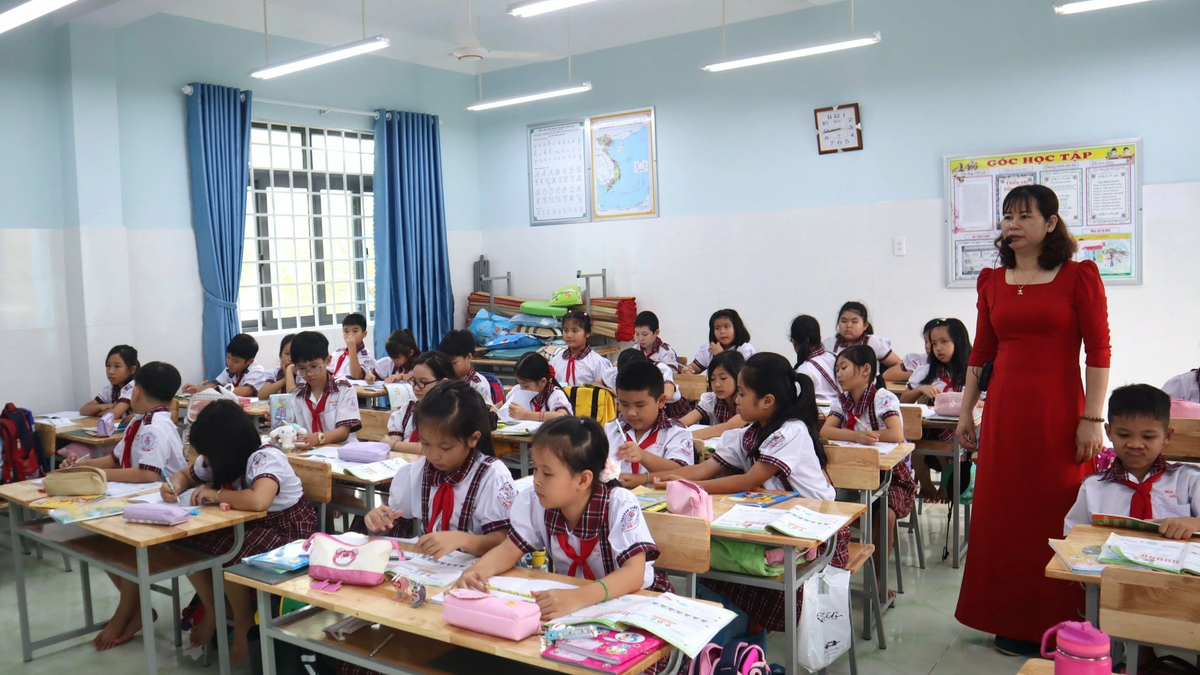



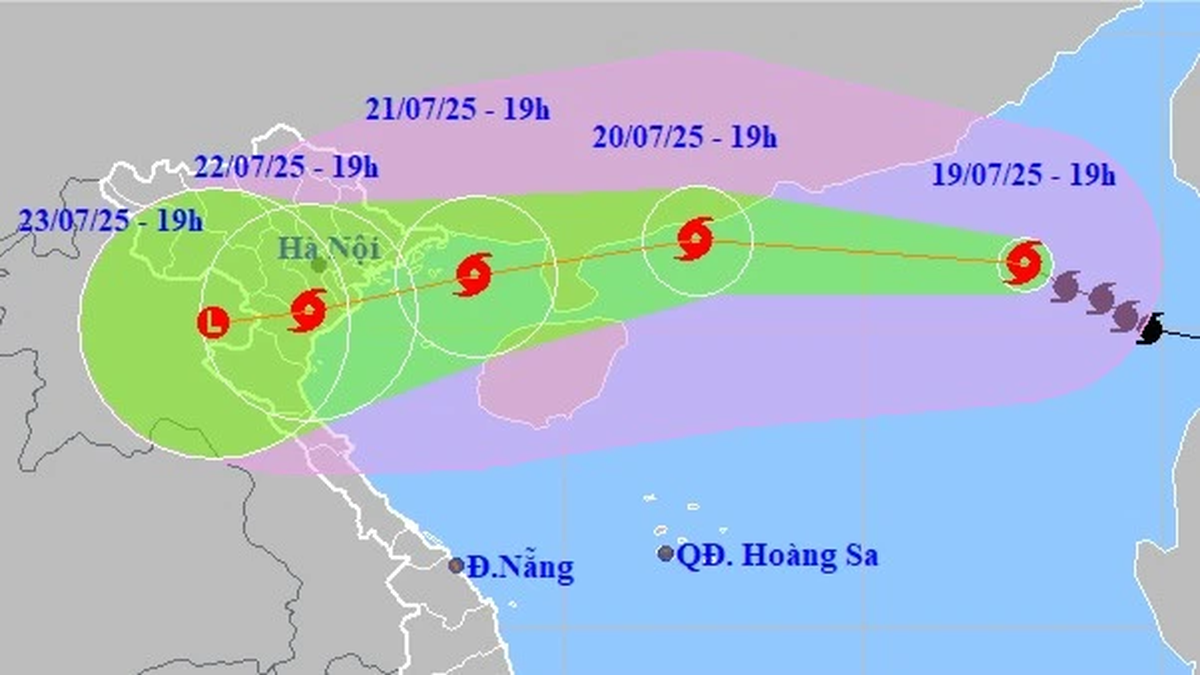
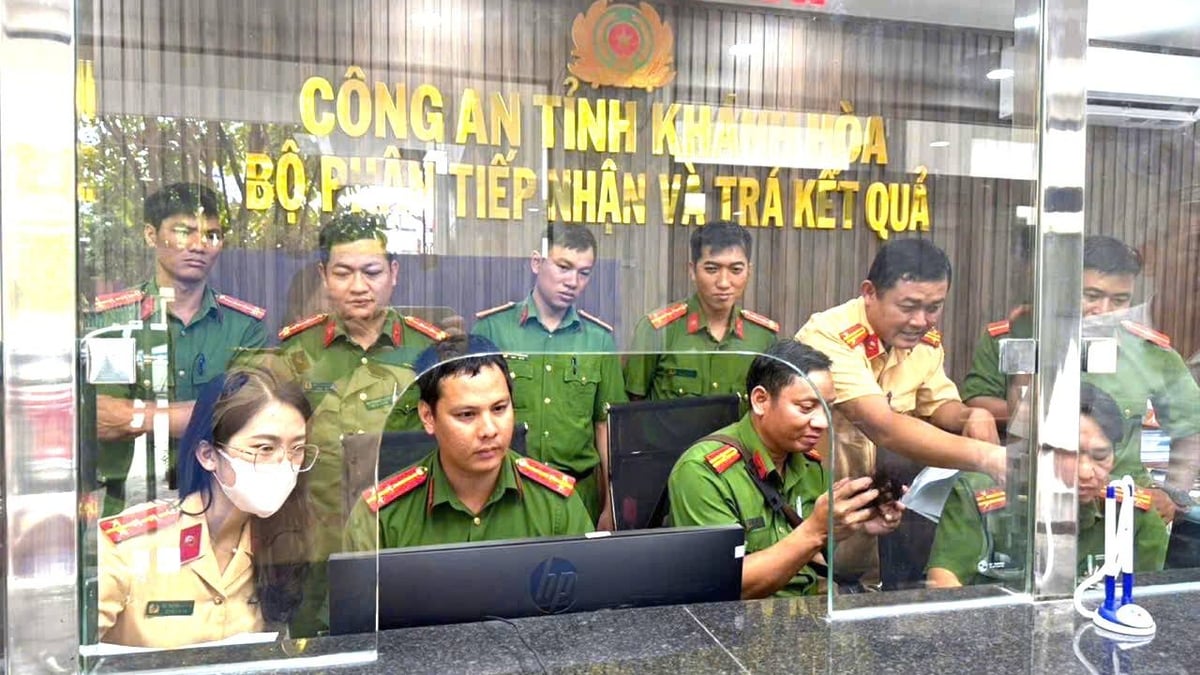
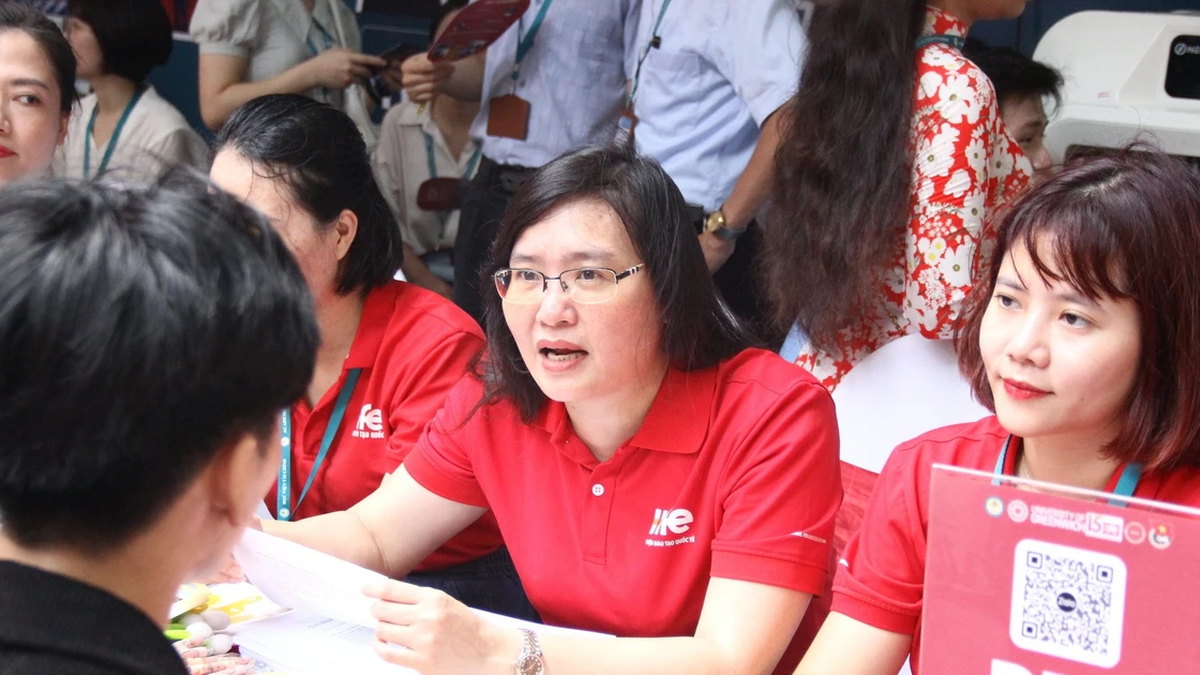
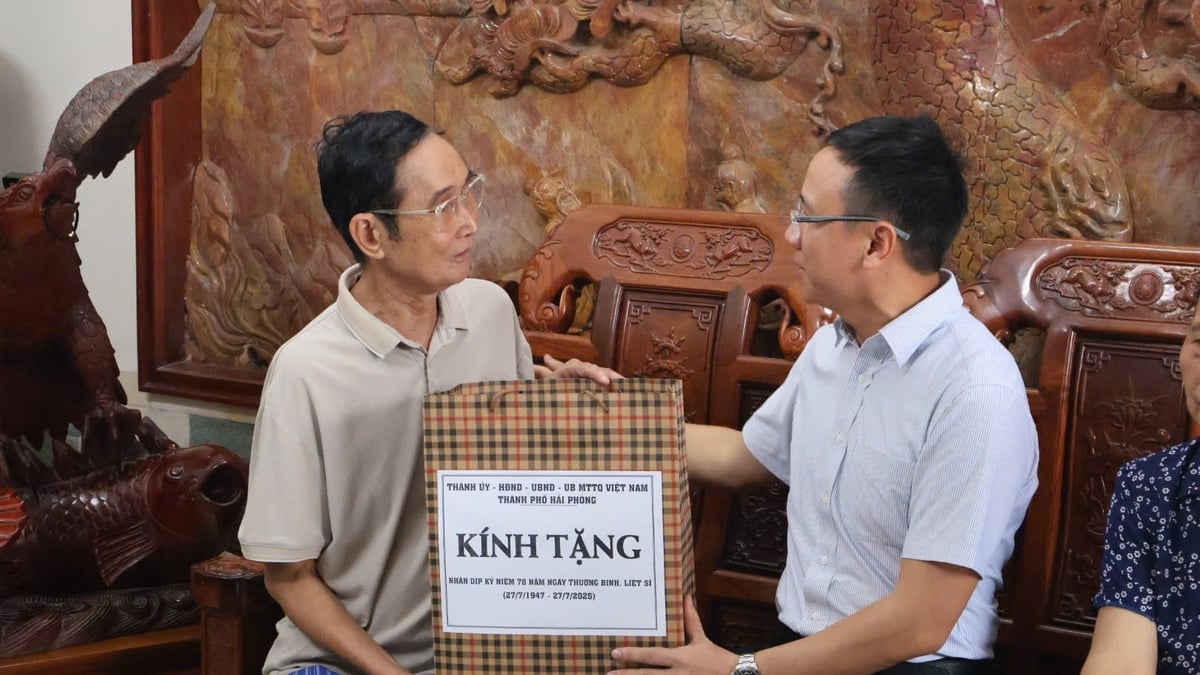













![[Photo] National Assembly Chairman Tran Thanh Man visits Vietnamese Heroic Mother Ta Thi Tran](https://vphoto.vietnam.vn/thumb/1200x675/vietnam/resource/IMAGE/2025/7/20/765c0bd057dd44ad83ab89fe0255b783)










































































Comment (0)